
Weather: 8 Things NOT To Leave In The Cold
Over the next several days, weather conditions from the north to the south are expected to be severe. Sub-zero temperatures, blustery snow, and hurricane-force winter wind gusts that will make the cold feel historic has forecasters warning what you should and should not do during the brutal coming days.
Current Events
They’re calling it a bombogenesis, which will result in what’s known as a “bomb cyclone.” The storm is expected to strike early today and dump 6 to 12 inches of snow up and down the eastern seaboard, hurl 40- to 60-mph wind gusts, then dive temperatures down to the single digits, effectively turning everything left behind into ice.
In anticipation, most schools have already been closed, hundreds of flights have already been canceled, and Congress has canceled all voting for the day. With this type of weather, how should you prepare? Here are 8 tips on what NOT to leave/use in the cold weather.
.
Cellphones
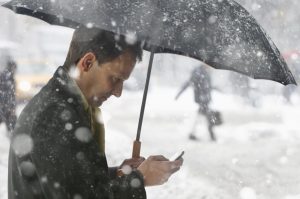 According to Apple, leaving an iPhone or iPad in your car exposed to the elements when temperatures drop below negative-4 degrees will cost you. In fact, they recommend that you shouldn’t even have your favorite device out and operating at any temperature lower than 32 degrees. Samsung also offers similar recommendations for their phones and electronics. Lithium-ion batteries popular in cellphones are the most vulnerable component to cold. They can completely stop working in extremely cold weather. Although they will likely be OK once you are back inside, repeated exposure to subzero temperatures can cause longterm problems.
According to Apple, leaving an iPhone or iPad in your car exposed to the elements when temperatures drop below negative-4 degrees will cost you. In fact, they recommend that you shouldn’t even have your favorite device out and operating at any temperature lower than 32 degrees. Samsung also offers similar recommendations for their phones and electronics. Lithium-ion batteries popular in cellphones are the most vulnerable component to cold. They can completely stop working in extremely cold weather. Although they will likely be OK once you are back inside, repeated exposure to subzero temperatures can cause longterm problems.
.
Musical Instruments
Musical instruments can very easily go out of tune when exposed to extreme cold. According to The Real School of Music, “damage can be done when an instrument shrinks as a result of the cold air. If your instrument is made of real wood, the cold air can cause cracking, which is very expensive to repair. Sometimes they are broken beyond repair.” That said, keeping your favorite musical instrument out of your car, the attic, or anywhere it could be exposed to freezing temperatures will save you a lot of heartaches.
.
Soda or Beer
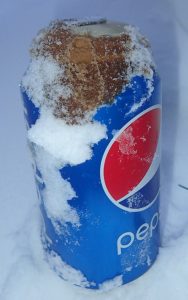 We all know water expands when it freezes. Therefore, canned liquids under pressure are an almost sure explosion. The temperature for Coca-Cola to freeze is 30 degrees, while the temperature for beer that’s 5% alcohol by volume is 27 degrees. Our tip: don’t leave coke and/or beer cans in your car, the garage, or anywhere it might be susceptible to the weather.
We all know water expands when it freezes. Therefore, canned liquids under pressure are an almost sure explosion. The temperature for Coca-Cola to freeze is 30 degrees, while the temperature for beer that’s 5% alcohol by volume is 27 degrees. Our tip: don’t leave coke and/or beer cans in your car, the garage, or anywhere it might be susceptible to the weather.
.
Canned Foods
Allowing canned goods (such as beans) to freeze will cause the water inside the can to freeze and expand in a way similar to beer and soda. This could result in a broken seal, which could lead to spoilage. If canned food freezes, allow it to thaw in a refrigerator. “If the product doesn’t look and/or smell normal, throw it out,” says the USDA. “DO NOT TASTE IT! If the seams show signs of rust or have burst, throw the cans out immediately by wrapping the burst can in plastic and disposing of the food where no one, including animals, can get it.”
.
Eggs
Know that it’s a bad idea to allow eggs to freeze inside their shells. If this ever happens, throw away any cracked eggs but keep any uncracked ones frozen. Just move them to the refrigerator before use.
“These can be hard-cooked successfully, but other uses may be limited. That’s because freezing causes the yolk to become thick and syrupy so it will not flow like an unfrozen yolk or blend very well with the egg white or other ingredients,” says the U.S. Department of Agriculture Food Safety and Inspection Service.
.
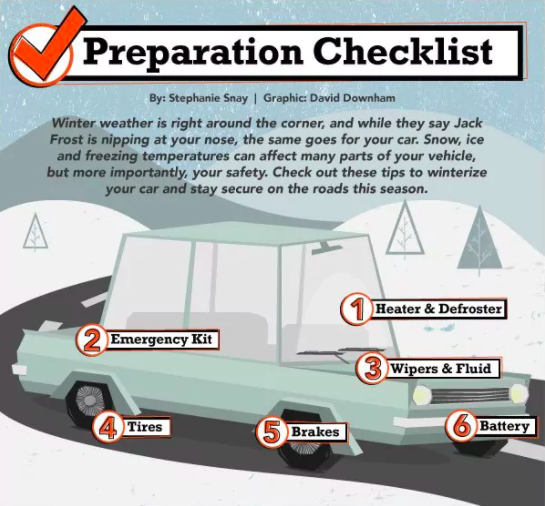
A Low Gas Tank
Keeping your fuel tank more than half-full during cold weather helps to prevent your fuel lines from freezing. You should also regularly check fluid levels, such as antifreeze. Additionally, cold weather can affect tire pressure and your brakes.
“A temperature change of just 10 degrees can cause a 10% reduction, or constriction, of air in tires. So tire pressure can be affected from day to night temperature,” automotive experts say.
.
Medicine
Please be advised that some medications can be affected by cold temperatures. Pharmacists caution that drugs, such as insulin, can lose their effectiveness if they freeze. The same goes for any so-called suspended medication that has to be shaken before use. With that said, don’t leave medicines in the trunk of your car or in any location where the weather could cause a negative effect.
.
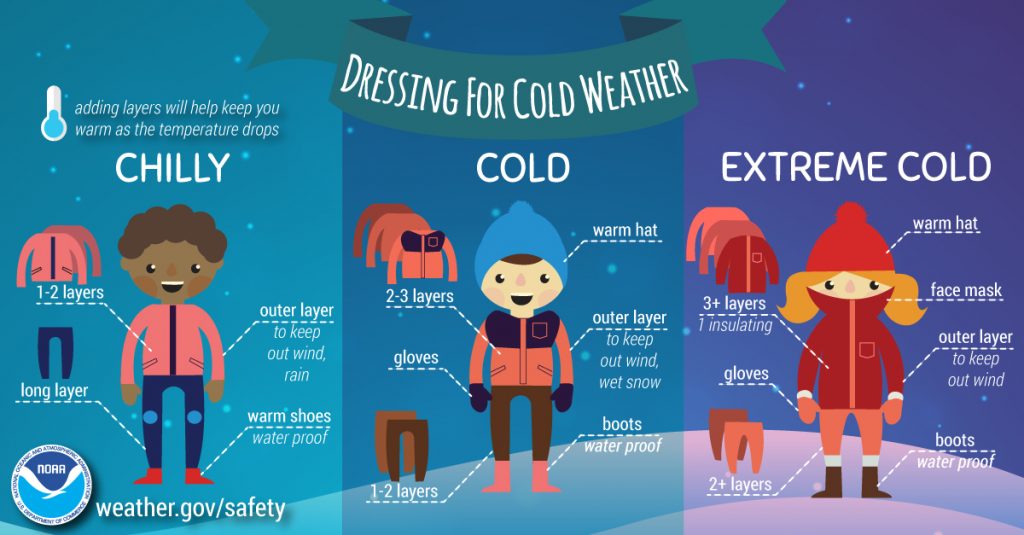
Loved Ones
This should be obvious, but it’s worth mentioning that children and the elderly can be more susceptible to hypothermia at cold temperatures. According to the Centers for Disease Control and Prevention, symptoms such as shivering, confusion, and exhaustion, are warning signs of hypothermia and should receive immediate medical attention. So, leaving your loved ones inside a cold car while you run into the store, even for a limited amount of time, could be deadly. Also, it’s a good idea to check on elderly family members and neighbors to make sure their heat is operational.
The same comfort care goes for pets.
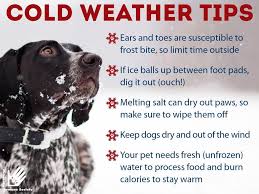
A Connecticut man is under arrest after his dog was discovered frozen solid while chained inside an outdoor doghouse. Extreme cold temperatures served as a virtual deep-freezer for the family pet, who was found with feces stuck to its frozen corpse. Veterinary experts agree that you should bring outdoor pets indoors whenever the temperature drops below 20 degrees. Puppies, kittens, and short-haired pets should be brought inside anytime the temperature drops below 40 degrees.




